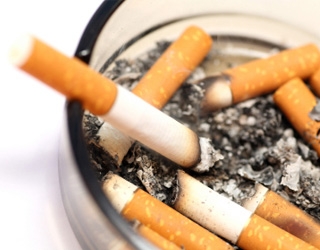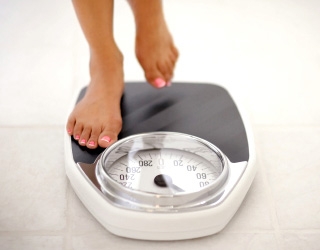7 Ways to Enhance Your Bone Health
Talk with your doctor about prevention.
Because every individual is different, it is important to start talking with your doctor about your particular risk for osteoporosis as soon as possible. Topics to discuss include whether you need to get a bone density scan, whether your health history — as well as your family history — makes you more likely to develop osteoporosis, and whether some of the new bone-building medications might be right for you.

Exercise
Exercise.
When you move your muscles (and, by extension, your bones), the action stimulates osteoblasts to create more bone. Because this bone-building action slows down as we age, it’s critical for children and young adults to get plenty of exercise to take advantage of this process. However, exercise remains vital to maintaining your bone health even in later years. That’s because regular physical activity maintains the muscle tone and strength surrounding your bones, which will help prevent falls and injuries that could lead to breaks and fractures. Weight-bearing exercises — those that require your body to carry its own weight, such as walking, jogging, and low-impact aerobics — are very helpful. Even better, however, are strength training or resistance exercises like lunges, planks, pushups, and exercises that require use of resistance bands, dumbbells, free weights, or weight machines (even water jugs and soup cans make great weights). These types of exercises build healthy lean muscle mass that in turn protects the precious bone tissue underneath.

Maintain a healthy weight
Maintain a healthy weight.
Although many women believe that there is no such thing as “too thin,” there is. Eating disorders, celiac disease, and other medical problems can cause weight to drop to levels that are unhealthy for bones. If you are underweight, consider talking with your doctor or a registered dietitian about how to bring your weight up to a healthy level.

Stop smoking
Stop smoking.
For more than 20 years, smoking has been linked with a higher risk of osteoporosis, but the reasons why aren’t entirely clear. It could be that people who smoke have other risk factors that make them more likely to have low bone density, such as lower body weight, infrequent exercise, or poor nutrition. It could also be that cigarette smoke spurs changes in some body hormones that trigger bone loss. Plus, some research with laboratory animals suggests that nicotine may have a direct effect on bone, namely inhibiting the production of bone-building osteoblasts.

Encourage those you love to stop smoking
Encourage those you love to stop smoking.
Ask your loved ones to stop smoking for their own bone health — and yours. Harvard researchers studied bone health in more than 14,000 people in China and discovered that nonsmoking women who were exposed to secondhand smoke were three times more likely to develop osteoporosis than women who had no exposure to smoke. The theory is that cigarette smoke may affect levels of estrogen, a hormone that regulates bone turnover. If you can’t persuade the smoker in your life to quit the habit, try to establish house rules that will minimize your exposure, such as only smoking outdoors or by an open window.

Drink alcohol only in moderation
Drink alcohol only in moderation.
Drinking alcohol to excess is undeniably harmful to your bones. Heavy drinkers are more prone to bone loss and accidental falls, which can result in fractures. That said, preliminary research suggests that light drinking may actually help preserve bone strength. In a study of hundreds of women ages 65 to 77, researchers discovered that women who did not drink alcohol at all had the lowest bone density of all. Bone density was highest in women who drank two to four alcoholic drinks per week (not per day!). Women who drank more than four alcoholic drinks per week had lower total bone mineral density (although still higher than nondrinkers). Scientists believe that small amounts of alcohol may reduce bone breakdown, perhaps by increasing levels of estrogen. I don’t recommend nondrinkers to start imbibing as a way to maintain bone density — however, if you do drink, you can continue to do so in moderation without fear of weakening your bones. For overall good health, women should limit their intake to no more than one drink per day; men should have no more than two drinks per day.

Yo-Yo no more
Yo-yo no more.
Even though thin women are generally more susceptible to osteoporosis than overweight women, women who are chronic dieters may also be at increased risk of weak bones regardless of how much they weigh. Studies suggest that years of dieting may have a cumulative negative effect on bone health: Some women eat so poorly that they haven’t taken in the nutrients needed to build or maintain their bone strength. Dieting by severely restricting food intake is never a good idea. (If you want a better way to lose weight and keep it off for good, feel free to check out my Online Weight-Loss Program.)

Talk with your doctor about prevention
Talk with your doctor about prevention.
Because every individual is different, it is important to start talking with your doctor about your particular risk for osteoporosis as soon as possible. Topics to discuss include whether you need to get a bone density scan, whether your health history — as well as your family history — makes you more likely to develop osteoporosis, and whether some of the new bone-building medications might be right for you.

